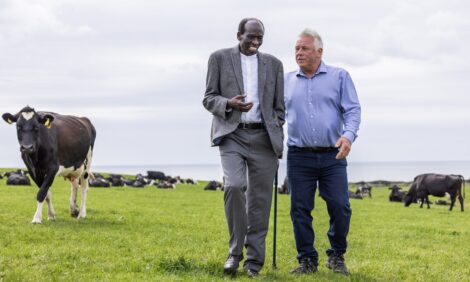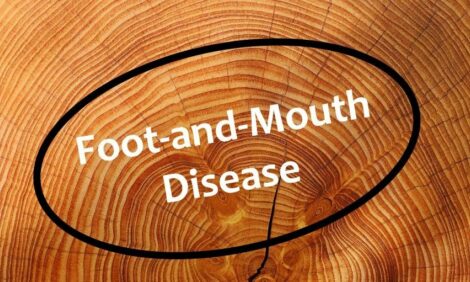



Measuring Stress In Cows: An Exact Science?
GLOBAL - Measuring and quantifying discomfort in cows can be an exact science, US cattlemen have been told this week.Furthermore, comprehensively monitoring animal welfare and stress can be realised in end product value.
Addressing the 2014 Cattle Industry Convention, Dr Karen Genswein told cattlemen that consumers are willing to pay 20 per cent more for labels denoting welfare conscious farming.
She emphasised market access as an economic benefit of reducing animal stress, stating: “Animals with increased stress shed more pathogens and this is not good for food safety.”
She outlined a range of physiological measures that act as signals for producers to tell them something in their management system is wrong or distressing.
Farmers were reminded of the hormone cortisol.
Cortisol samples taken from saliva and blood are good short term indicators, but hair samples can indicate stress days, weeks and months in the past, said Dr Genswein.
“Cortisol in hair gives us a longer term view - a more chronic measure,” she explained. “This is better for signalling the long term impact of weaning calves, transporting cattle and stress from vaccinations.”
She also described a pain indicator – ‘substance p’.
This neuropeptide is a biomarker of pain which Dr Genswein explained can be measured in the blood.
As well as the physiological signals of stress, the Canadian Beef Export Federation expert told producers that behavioural observation also had its place.
She said signals such as; vocalization, foot stomping, reduced feed intake; time spent lying and standing, walking strides, locomotion scores and drooling are useful indicators of stress in animals.
“Behaviour is very telling and we cannot discount it. I often get asked, ‘what is the silver bullet solution?’,” said Dr Genswein, adding that scientists often have contradictory messages from behaviour and physiology.
She stated that, when pushed, she would choose bevioural signals over physiological ones.
The importance of minimising stress with good management was stressed by Texas veterinarian Arn Anderson. He believes that good management is more important than the right vaccination plan.
He told farmers that stress leads to disease and when cattle are not ‘fit’ medical efforts lose efficacy.
“Vaccines do not replace management,” he said. “You can put all the vaccines you want into cattle, but if they are not fit animals, they will not respond to the vaccine administered.”
Michael Priestley
News Team - Editor
Mainly production and market stories on ruminants sector. Works closely with sustainability consultants at FAI Farms



